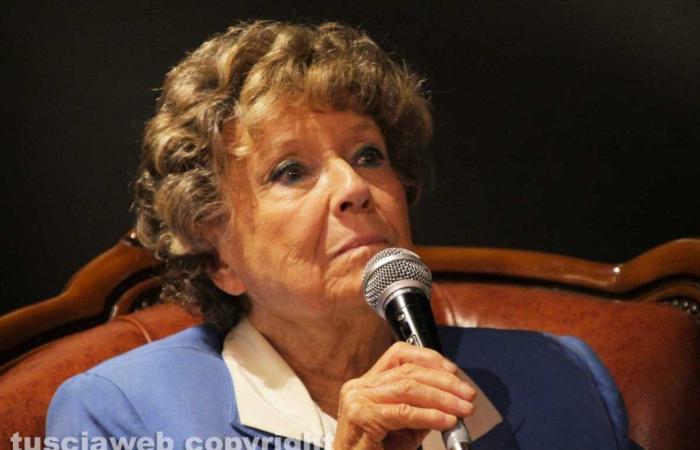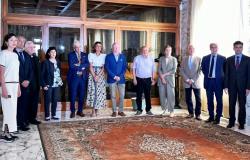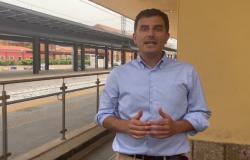Culture – At 6.30pm Wednesday 3 July at the National Etruscan Museum Rocca Albornoz
| |
Viterbo – We received and publish – Next Wednesday 3 July at the Rocca Albornoz National Etruscan Museum in Viterbo at 6.30 pm Dacia Maraini returns.
Dacia Maraini
A year later he will honor us again with his presence to tell of his painful past lived for some years in a Japanese concentration camp, admirably described in his poetic book Vita mia published by Rizzoli. About her Her memories of her in a Japanese concentration camp in 1943, where she was locked up together with her family.
“It is 1943. Dacia Maraini is seven years old and lives in Japan with her parents and little sisters Toni and Yuki. Her father Fosco teaches at Kyoto University, her mother, Topazia Alliata, is happily integrated into the fabric of the city. The dream is peace, it is thought that the war will end soon. Everything falls apart, however, when Fosco and Topazia decide not to swear allegiance to the Nazi-Fascist government of the Republic of Salò. The couple and their daughters are taken to a concentration camp intended for traitors to the homeland”.
These are two extremely difficult years for the Maraini family who, despite everything, resist the oppression and abuse with extreme dignity.
Father Fosco goes so far as to cut off the last phalanx of his little finger on his left hand, a highly symbolic gesture in Japanese culture, which restores the respect of the concentration camp commanders. This dramatic action earns him a goat whose milk will partly feed the deportees until the liberation by American troops.
Intimate, poetic book, sweet and hard like the life that leads to Hell and brings back to light. A book from which the immense love and profound esteem towards his parents, his lighthouse, his guide on the path of life shines through.
Book that makes the personal story a fresco of world history and the horrors of war seen through the eyes of a 7-year-old girl.
Heartbreaking, dramatic, heartbreaking stories that never leave room for despair, but on the contrary always keep hope alive. “Music and poetry have the ability to thin out reality’s pains”.
The fluid, elegant style makes the book almost a novel, which from the initial pathos dissolves into a praise of culture, of reading, of knowledge that allows you to open your mind and break down boundaries.
“Books made me European in terms of sensitivity, values and knowledge, Italian in terms of language”. The book ends with the hope that the common European roots of France, Italy, Spain and England lead towards a communion of intentions.
“Now perhaps we have come to understand that there are more things that unite us than those that divide us and that small countries closed with haughtiness within their borders will be devoured by the larger ones if they do not ally with each other”.
The horror of war, Dacia seems to suggest, has not won over the hope of the common good. All this will be discussed on Wednesday 3 July at the National Etruscan Museum Rocca Albornoz in Viterbo.
The essayist Rosella Lisoni will dialogue with Dacia Maraini, readings by Anna Maria Fausto: Unitus teacher and performances by Pietro Benedetti: actor, director and community narrator.
June 29, 2024






